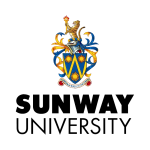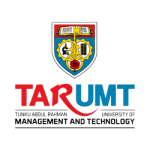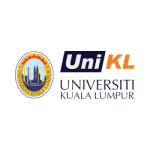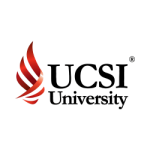In This Article
- What is a Foundation in Science?
- What Foundation in Science subjects should you choose?
- Foundation in Science bachelor's degree programmes and career pathways
- Foundation vs other pre-university programmes
- What are the benefits of studying a Foundation in Science?
- How to apply for a Foundation in Science
- Foundation in Science courses in Malaysia

What is a Foundation in Science?
As far as progression to undergraduate studies is concerned, a foundation programme is one of the quickest ways to go about it. How many years does it take, exactly? Usually, just one.
It is a particularly viable option for students interested in furthering their studies in subjects related to science, information technology (IT), and mathematics.
To enrol, students are usually required to score a minimum of five Cs or five credits, including in mathematics and two science subjects, in either SPM or an equivalent like O-Levels.
The Science subjects are chemistry, biology, and/or physics. You may also need to have taken English and additional mathematics. With that being said, entry requirements vary according to the institution, so be sure to check before proceeding with your Foundation in Science application.
While there is no set number of subjects for a Foundation in Science course, there are usually over 10 subjects overall. They are typically divided into core subjects and electives.
Students are normally assessed via coursework and written exams. The coursework may consist of presentations, group projects, practical tests, and quizzes that are conducted throughout each semester. Written exams are conventionally administered at the end of each semester.
Tuition fees for Foundation in Science courses vary widely from institution to institution, with an average range of between RM8,000 and RM25,000. Many colleges and universities also give scholarships and financial aid to students of outstanding talent or from underprivileged backgrounds.
As for whether it is easier than A-Levels – widely considered the gold standard of pre-university programmes – it would be like comparing apples to oranges since a Foundation in Science focuses solely on science-related subjects. However, it can be considered an easier and more direct route to a science-based bachelor’s degree.
- Fast facts about Foundation in Science courses
- The programme usually takes one year to complete.
- Students are required to score a minimum of five Cs or five credits in SPM or equivalent to qualify.
- Tuition fees can range between RM8,000 and RM25,000.
- The number of subjects varies from institution to institution, with a mix of core modules and electives.
- Bachelor’s degree programmes popular among Foundation in Science graduates include engineering, medicine and computer science.
- A Foundation in Science can lead to high-paying roles, such as civil engineer, surgeon and software engineer.
What Foundation in Science subjects should you choose?
The subjects offered in a Foundation in Science course differ depending on the institution. Having said that, there are usually areas of study that are similar across courses.
As a Foundation in Science aims to build your fundamental knowledge of the sciences, you can expect core subjects such as mathematics, physics, chemistry, and biology. All these are crucial to pursuing degrees in medicine, engineering and pharmaceutical sciences, to name a few.
In addition to core subjects, Foundation in Science courses typically have electives that cater to diverse interests and enable you to dip your toes into more specialised branches. These can range from computer science and environmental science to psychology and statistics.
Some colleges or universities offer sets of electives grouped under different specialisations, while others allow you to pick electives individually. If you feel overwhelmed by your choices, take a moment to consider your personal motivations, interests and future career goals – all of which can help shape your decision.
For instance, students with a penchant for problem-solving and technology might find computer science or programming electives appealing, while those interested in understanding how the world and environment work can opt for life sciences-based electives like psychology and organic chemistry.
Foundation in Science courses are usually structured to provide a holistic understanding of scientific principles. This is done by having a series of continuous assessments conducted throughout the study period – think group projects, laboratory work, quizzes and presentations – coupled with written exams.
“What can I study after Foundation in Science?” you may ask.
The answer is a great deal of things. Upon successfully completing a Foundation in Science course, you can pursue a wide range of bachelor’s degrees.
For example, those who complete a Foundation in Science focusing on engineering may take courses in various engineering disciplines, such as civil, biomedical and chemical. This can then lead to jobs in your chosen engineering specialisation.
On the other hand, a Foundation in Science with a concentration in biology and chemistry could pave the way for a Bachelor’s in Biomedical Science, opening doors to roles in medical research and development, scientific journalism and academia.
Foundation in Science bachelor's degree programs and career pathways
Foundation vs other Pre-University programmes
| Criteria | Foundation | Diploma | STPM |
|---|---|---|---|
| Duration | 12 months | 24 - 30 months | 18 months |
| Structure | Tailored to degree courses offered by the university and a combination of compulsory, elective and general studies subjects | Focuses on a specific field of study, with greater emphasis on learning practical skills that boost one’s employability upon graduation | Modular format that continually assesses students over three six-month-long semesters. Beyond written exams, students are assessed via field study, projects and practical work |
| Assessment | Mix of coursework, exams, quizzes and final assessments | Mix of assignments, practical assessments, coursework and examinations | School-based assessment (20-40%), centralised examinations (60-80%) at the end of each term and co-curricular activities (10%) |
| Recognition | Recognised by the university that provides the programme and some other private universities (may vary from institution to institution) | Recognised for degree acceptance at the university offering the diploma. Credit transfer may be applicable to other institutions | Recognised by all local public universities, local private universities and over 2,000 foreign universities |
| Entry requirements | Varies by university | Course-specific requirements | Entry to public universities requires a minimum CGPA of 2.00, with grades of C and above in 3 subjects, including General Studies. Entry requirements for local private universities and foreign universities vary according to institution |
| Number of subjects | Varies by course | Varies by course | 4 - 5 |
| Criteria | A-Levels | American Degree Transfer Program (ADTP) | WesternAustralian Matriculation (AUSMAT) | Canadian International Matriculation Programme (CIMP) |
|---|---|---|---|---|
| Duration | 14 - 24 months | 24 months | 7 - 10 months | 12 - 15 months |
| Structure | Has two levels called AS and A2, which foster critical thinking and in-depth knowledge of chosen subjects | Broad-based, learning-driven education | Assignment-based with continuous assessment | Interactive learning focus, with a progressive accumulation of marks |
| Assessment | Final examinations at the end of each level | Mix of exams, coursework, assignments, presentations, quizzes and research papers | 50% coursework and 50% exams | 70% coursework and 30% final examinations |
| Recognition | Widely recognised by local and international institutions | Recognised by American universities | Recognised by local and international institutions | Recognised by local and international institutions |
| Entry requirements | Subject-specific requirements that depend on the course | Completion of approximately 60 credits | Varies by university | Varies by university |
| Number of subjects | 3 - 4 | 20 | 5 | 6 |
What are the benefits of studying Foundation in Science?
-
Helps you transition more easily into your bachelor’s degree programme
As a university’s foundation courses are designed to correspond to its bachelor’s degrees, you will be able to apply your credits and make a smooth transition to a science-based degree of your choice. -
Gives you the freedom to switch over to a non-science degree
If, upon obtaining your Foundation in Science, you decide that you want to pursue something in the arts instead, you can usually switch to programmes such as mass communication, hospitality and tourism and business. However, this depends on the institution, so always check ahead. -
A quicker way to start your undergraduate studies
As a Foundation in Science only takes 12 months to complete, it is one of the fastest ways to kick-start your journey towards a bachelor’s degree. -
Relatively affordable
Compared to other pre-university options like A-Levels or the Western Australian Matriculation (AUSMAT), which can cost upwards of RM40,000, a Foundation in Science course is more affordable. This is further helped by its shorter duration and the availability of scholarships and financial aid offered by different institutions.
How to apply for a Foundation in Science
The process of applying for a Foundation in Science is largely the same across institutions, though there may be some slight variations.
Here is the general application process, step-by-step:
Step 1. Pre-application
- Check the requirements of the Foundation in Science programme at your desired institution such as exam results and minimum age.
- Check the institution’s Malaysian Qualifications Agency (MQA) accreditations to ensure your programme is recognised and meets standards.
- Check the number of intakes, intake dates and other key dates like the last day of application submission and payment deadlines.
Step 2. Application
- Prepare all necessary documents for your application. Institutions usually provide a checklist you can refer to easily.
- Check for application fees. If a fee applies, proceed with paying the fee.
- Check for a course deposit. If a deposit applies, proceed with paying the deposit.
- Submit your application and required documents. Most institutions have an online portal where you can make your submission.
Step 3. Post-application
- If an online portal for your desired institution exists, you can usually track your application status there.
- Otherwise, keep an eye on your inbox for updates on your application via email.
- If your application is successful, you should receive an email detailing the next steps, such as your offer acceptance deadline and orientation date.
Foundation in Science courses in Malaysia
Many reputable institutions off Foundation in Science courses in Malaysia, all of which can set the foundation for promising careers in the sciences – and beyond. Here are some of them:
1. Sunway College
Sunway College offers a Foundation in Science and Technology (FIST). Students with a FIST qualification can directly progress to Sunway University’s School of Engineering and Technology, School of Medical and Life Sciences and School of Mathematical Sciences.
| Intakes |
|
|---|---|
| Duration | 12 months |
| Subjects |
Semester 1 Core Units
Enrichment Unit
Academic Electives (choose 2)
Semester 2 Core Unit
Enrichment Unit
Academic Electives (choose 2)
Semester 3 Core Unit
Enrichment Unit
Academic Electives (choose 2)
|
| Fees | From RM17,500 (with administrative fees of RM1,980 per year for international students) |
2. University of Malaya
The University of Malaya offers five types of Foundation in Science courses. Students can choose from social sciences, life sciences, physical sciences, Islamic studies, and science or enrol in the Special Preparatory Program to enter Japanese universities.
| Intakes |
|
|---|---|
| Duration | 12 months |
| Subjects |
Semester 1
Semester 2
|
| Fees | From RM12,300 |
3. UITM
Undertaking the Foundation in Science or Asasi Sains programme at MARA University of Technology (Universiti Teknologi MARA, or UiTM) will provide a direct route to science and technology degree programmes at the institution and other public universities.
| Intake |
|
|---|---|
| Duration | 12 months |
| Subjects |
Semester 1
Semester 2
|
| Fees | From RM698 |
4. Taylor's College
The Foundation in Science course at Taylor’s College offers a diverse learning experience through a vibrant landscape of extra-curriculars such as research interactions and competitions. It aims to prepare students for STEM (science, technology, engineering, and mathematics)-related degrees and jobs.
| Intake |
|
|---|---|
| Duration | 12 months |
| Subjects |
Core Modules
Electives (choose 1)
|
| Fees |
From RM20,500 (local students US$9,099 (international students) |
5. HELP University
HELP University sets itself apart from other institutions that offer Foundation in Science courses through value-added subjects such as Critical Thinking Skills and Personal Development and Leadership to produce well-rounded individuals.
| Intake |
|
|---|---|
| Duration | 12 months |
| Subjects |
Semester 1: Core subjects
Semester 2: Core subjects
Semester 3: Core subjects
Science Electives (2 sets mandatory)
Other electives
|
| Fees |
From RM18,100 |















